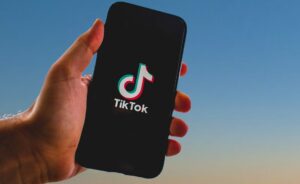Mt. Gox was one of the earliest Bitcoin exchanges and, at its peak, was responsible for processing over 70% of all Bitcoin transactions. However, the exchange quickly became a prime target for hackers and scammers, in addition to claims made against its operators.
Now, investors and crypto enthusiasts are still exploring different ways to recover Mt Gox lost Bitcoins. It’s estimated that 650,000 to 850,000 Bitcoin were lost — totalling US$25 billion with today’s prices. It makes sense people are still trying to find new ways for Mt Gox payouts.
The exchange declared bankruptcy in 2014 and spent years wading through legal battles. At present, the trustee for Mt. Gox announced a creditors rehabilitation plan. Unfortunately, the system for filing claims has since been closed, which means those who lost money in Mt. Gox can no longer hope for recovery through this method.
The Mt Gox bankruptcy was the beginning of a long process that still hasn’t ended. And yet, many of the official channels for dispute resolution are now closed. Does that mean what’s lost is gone forever, or is it possible to still recover Bitcoin from Mt. Gox? Keep reading to learn more.
What Happened To MtGox.com?
Why is Mt Gox bitcoin recovery still a pressing topic for those who lost money and the cryptocurrency community overall? Many of the lost funds have not been accounted for, and we can still learn lessons from the mistakes made by the exchange.
The domain name ‘Mtgox.com’ was purchased originally to build a Magic: The Gathering exchange site, but that project was quickly abandoned. In 2010, the domain owner Jed McCaleb discovered Bitcoin and saw its potential — and the need for an exchange.
Mt. Gox was born shortly after in 2010, with a primitive yet functional site allowing users to exchange Bitcoin with each other. McCaleb was correct that this was a needed service, and adoption was rapid.
McCaleb sold the exchange to Mark Karpeles, a developer living in Japan, in 2011. Karpeles would then grow the site to the world’s largest exchange before it all came crashing down.
Hacks and Breaches Wreak Havoc
Cryptocurrency has been a target of hackers and scammers from the early days, and Mt. Gox is a prime example.
The website was quickly targeted, and the earliest hacks allegedly occurred before McCaleb even sold the exchange. Some users allege that the sale was because hacks started happening, and McCaleb didn’t want to address them, instead selling the site to Karpeles. These allegations remain unproven.
The first confirmed hack took place on June 13, 2011, when approximately 478 accounts lost 25,000 bitcoin. Rapid trading took place, tanking the price of Bitcoin, and the company confirmed an additional 2,000 bitcoin were stolen.
This hack was only the beginning, and it wasn’t a single event that caused the exchanges collapses, but instead several devastating events, including:
- CoinLab, a partner of Mt. Gox, who was in charge of processing North American transactions, filed a $75 million lawsuit against the exchange in May 2013. The suit alleges Mt. Gox did not transfer customers to CoinLab, therefore violating the agreement.
- The Department of Homeland Security issued a warrant against a subsidiary of Mt. Gox as it was not a licensed money transmitter in the U.S., resulting in the seizure of $5 million. This warrant was also issued in May 2013.
- Later in 2013, Mt. Gox issued a press release stating they had incurred significant losses due to crediting accounts before they actually received the money from the bank, creating room for exploits.
- In November 2013, customers began having to wait weeks or months before receiving any withdrawals from the exchanges.
- Two events occurred in 2014 that spelled the end: the site halted withdrawals citing a software bug, and the site was taken offline weeks later.
Mt. Gox filed for bankruptcy protection in 2014, where it was revealed that they had lost nearly 750,000 customer bitcoins and 100,000 of their own.
By 2016, creditors claimed they were owed a total of $2.4 trillion by the exchange, while only $91 million in assets were available to cover claims. In 2019, Mark Karpeles was convicted of tampering with financial records and received a suspended sentence of 2.5 years.
The Mt. Gox Case Today
The exchange may have filed for bankruptcy almost a decade ago, but thousands of crypto users are still trying to get their Mt. Gox money back — especially as the price of Bitcoin has skyrocketed since then.
Where does the case stand today, and is there any possibility of Mt. Gox recovery?
In November 2021, the trustee for Mt. Gox announced it had reached an agreement with Japanese courts for a rehabilitation plan. This plan established a process for registration and compensation for those who lost funds based on phases for different creditors.
Unfortunately, this process has now been finalized and sealed. This process finalization means that the official routes for recovering any lost funds from the site are closed. Now, recovering any losses from Mt. Gox requires working with a qualified cryptocurrency recovery agency.
Does that mean all hope is lost for those who missed the official claim process? Not necessarily. While everyone’s situation will be different, there’s still potential for recovery by tracking the hackers themselves. The right recovery agency might be able to help you take on this task.
The Mt. Gox Collapse: Lessons Learned and Future Implications
Mt. Gox remains among the most significant losses from hacks, breaches, and other illegal activity in the entire history of cryptocurrency. Whether Mt. Gox was inept or intentionally scamming crypto users is still being debated today, but there are still lessons to be learned and future implications to consider:
- Hackers will always target crypto companies: Hackers and scammers aren’t going to stop targeting crypto organizations and users themselves. New tactics keep emerging, and users need to protect against them — including only using reputable services. The nature of crypto makes it extremely appealing for those who want to commit financial crimes, so legitimate cryptocurrency users need to stay safe.
- Regulation is a good thing for cryptocurrency: The crypto community tends to be anti-regulation, and in many regards, it’s sensible. However, having a certain level of regulation and oversight is valuable to protect users from collapsing exchanges, hacks, and lost funds. For example, if a traditional bank is hacked, users’ funds are FDIC insured and can be replaced. Regulation can allow for this type of protection and prevent fraud, to begin with.
- Users need to thoroughly investigate any organization before transferring funds: Every crypto holder needs to fully understand any service, company, or other entity before transferring funds. While it’s easy to forgive crypto users in the days of Mt. Gox, we’ve seen enough scams by now to make it partially the user’s responsibility to ensure the safety of their funds. “Being your own bank” is part of the selling points of cryptocurrency, and that includes protecting your assets.
Overall, the rise and fall of Mt. Gox was a turning point in crypto that made users increasingly wary of new services. Additionally, one of the cornerstone rules of crypto — never store your crypto on an exchange — emerged out of the fall of Mt. Gox. Sadly, many users are still trying to recover funds, and most will not recover the full amount they lost.
The Best Strategy for Recovering Lost Bitcoin
How can you recover lost Bitcoin from Mt. Gox or from other scams, hacks, and breaches? While you can try to track them down on your own, you likely lack the expertise and resources to follow through to recovering stolen funds.
The best strategy for recovering any stolen cryptocurrency is partnering with a cryptocurrency recovery agency. A reputable agency can take on your case and try to find scammers or hackers, then take legal action to recover your lost funds.
You can potentially recover Mt. Gox funds from the hackers themselves rather than trying to receive funds from official disbursements. Choosing the right agency is crucial, so here’s how you can find the right one:
- A proven history of success: The right recovery agency will have public testimonials from past clients indicating how much crypto was recovered. Testimonials on the agency’s own website are important, but you should also look at third-party sites like TrustPilot and cryptocurrency forums.
- The right experts and processes in place: Recovering crypto from a scam or hack is a complex process requiring a wide range of experts in place. The process begins with blockchain experts analyzing how stolen funds were transferred. Then, cyber intelligence specialists need to connect blockchain activity with a real-world entity. Lastly, legal experts will work with law enforcement to recover stolen funds. Make sure your potential agency can accomplish every step before you get started.
- Avoid being scammed again: Sadly, some crypto recovery agencies are just another scam to take advantage of crypto users who were already scammed. It’s vital to perform a significant amount of due diligence before getting started with an agency. Be careful if they ask for any funds up front, only work in gift cards, or require sensitive information at the beginning.
There are other ways you can go about recovering stolen crypto. You can independently hire a blockchain analysis expert and a cybersecurity firm. The goal is to connect blockchain activity with a real-world identity, which isn’t impossible but is challenging. Additionally, once you’ve located the criminal, you’ll then need to involve legal experts to begin the recovery process.
The complexity of crypto recovery is why many users who were scammed opt for working with an experienced recovery agency. You’ll benefit from a ready-to-go team of experts and proven processes that give you the best chances of crypto recovery.
Partner with Lionsgate to Reclaim Your Bitcoin
Mt. Gox’s collapse is a significant milestone in the history of cryptocurrency and taught many Bitcoin users a hard lesson. Fortunately, we now have more regulation and transparency in many organizations, plus users themselves have learned from their mistakes.
If you lost Bitcoin in Mt. Gox or crypto from another scam, a crypto recovery agency might be able to help.
Lionsgate is an industry leader in helping our clients recover scammed cryptocurrency. Our experts in blockchain technology, cyber intelligence, and legal processes have helped past clients reclaim stolen Bitcoin — and we might be able to help you too.
Ready to learn more about our processes and if we can help you recover Mt. Gox Bitcoin? Contact us today for a free consultation to learn more about your situation so we can determine if we’re able to help you.















